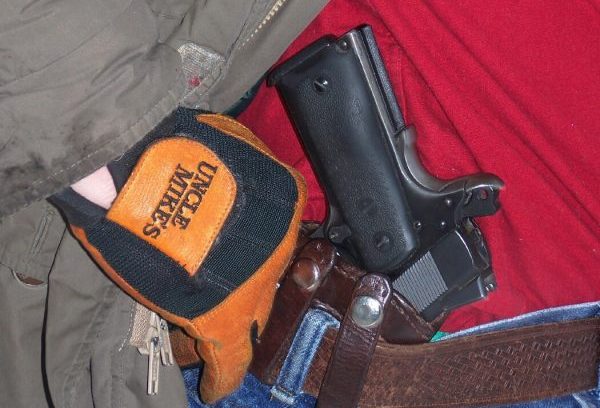
By Dave Workman
Editor-in-Chief
The California Rifle & Pistol Association (CRPA) is reporting on its website that oral arguments will be heard in federal court on the merits of an injunction granted in the challenge of SB2, the sensitive places law which effectively prohibits licensed concealed carry in many, if not most, public places.
The law was put on hold in December by U.S. District Judge Cormack J. Carney, who called SB2 “repugnant” to the Constitution. California appealed to a 9th U.S. Circuit Court of Appeals panel, which stayed the preliminary injunction, but then a second panel removed the stay, and Golden State gun owners are essentially back to square one. The new law is on hold and legally-licensed citizens can carry just like before, with the previous restrictions. The case is known as May v. Bonta.
The Los Angeles Times is confirming that a 9th Circuit panel will consider the state’s appeal in April.
Democrat Gov. Gavin Newsom was not happy with the court for vacating the stay. A statement from his office called the decision “dangerous” and alleged it puts the lives of California citizens in danger.
The Times quoted attorney Chuck Michel, who represents some of the plaintiffs in the case. He reportedly observed, “So the politicians’ ploy to get around the 2nd Amendment has been stopped for now. Now we will focus on stopping it for good.”
CA ‘SENSITIVE PLACES’ CARRY BAN BLOCKED 2ND TIME
The CRPA has posted a litigation update on its website, which explains what gun owners should do, and what the next steps will be.
“Many counties,” the bulletin explains, “have chosen to continue their CCW courses even with these additional standards because they understand that CCW holders are some of the more law-abiding citizens in the state. CCW holders already follow the rules, and therefore, these overbearing new regulations for the instructors are unnecessary. You need to check with your individual county on the process.
“Other counties,” the notice continues, “are being forced to look at their current CCW training and have stopped issuing CCW licenses until they can understand what would be required of them and how to implement these changes. In some counties, the CCW division officers could not even conduct the training because they would not qualify under these regulations.”
CRPA tells gun owners they should continue submitting concealed carry applications “in the manner described by your counties.” Elsewhere in the bulletin, CRPA addresses concerns of firearms instructors.
“We know many of you are greatly concerned with the latest emergency regulations from the DOJ regarding requirements for instructors of CCW courses,” CRPA acknowledges. “The emergency regulations were passed in short order, leaving little time for comment, although CRPA and GOC did work together to get a set of comments submitted on behalf of members. Many trainers also submitted comments in opposition to the regulations.
“Basically, the regulations, as written, would make it impossible for a large majority of current CCW instructors to meet the qualifications,” the bulletin states, “and would force them to go through additional and arbitrary training and certifications in order to meet those standards, thus putting CCW classes on hold in many counties. This is a blatant attempt to stop so many CCW licenses from being issued since the Bruen decision, which took away California’s ‘may issue’ standard.”



